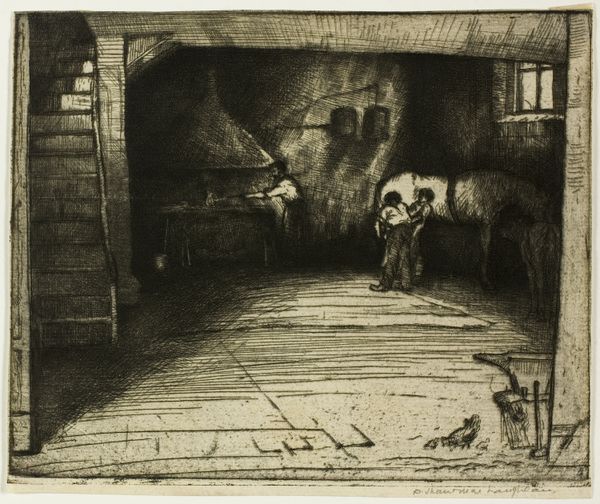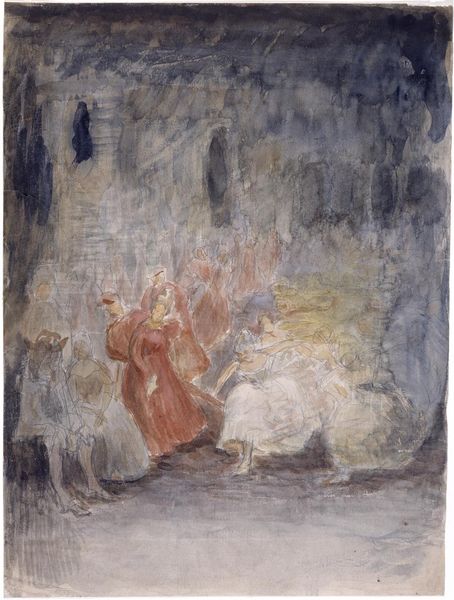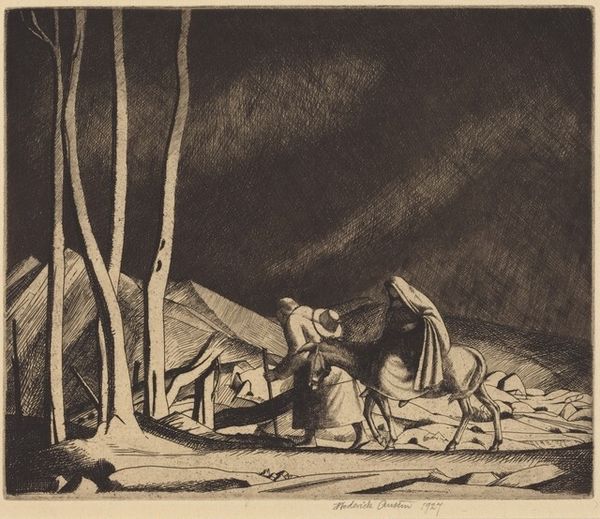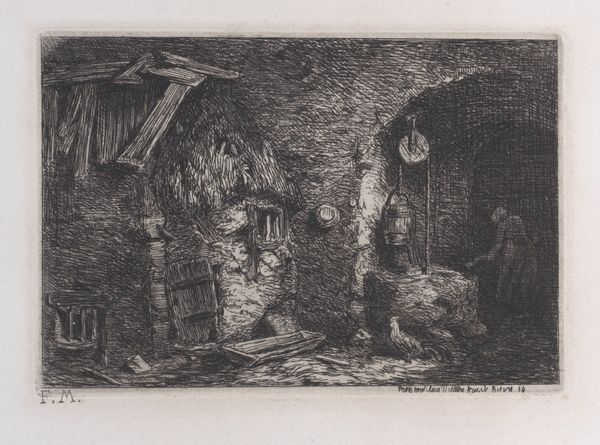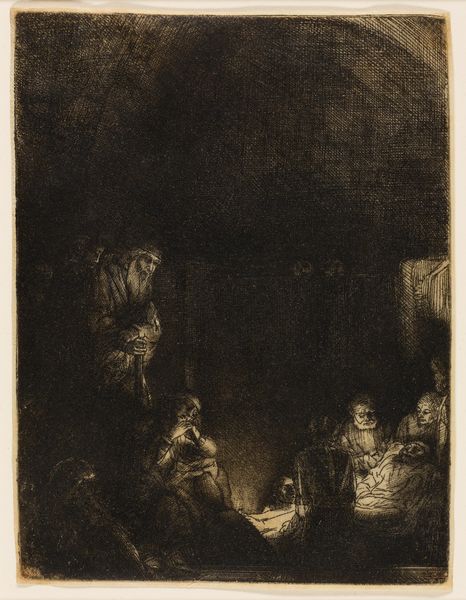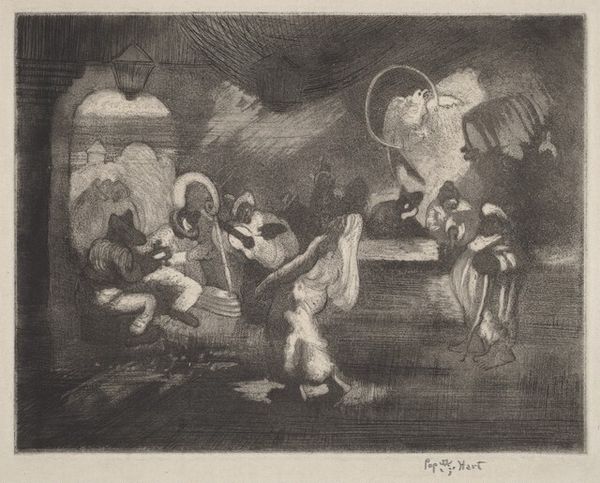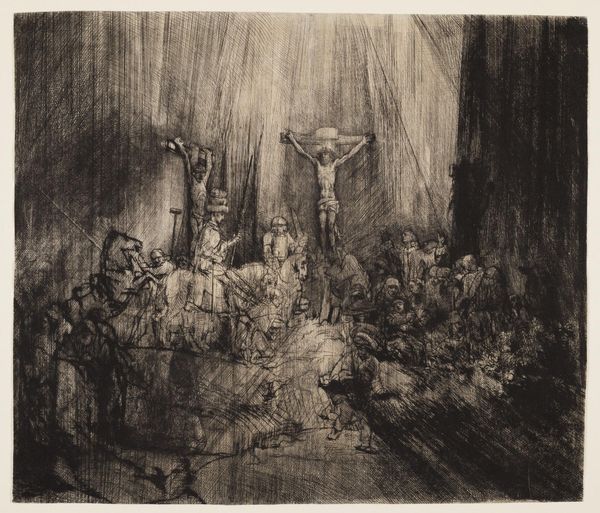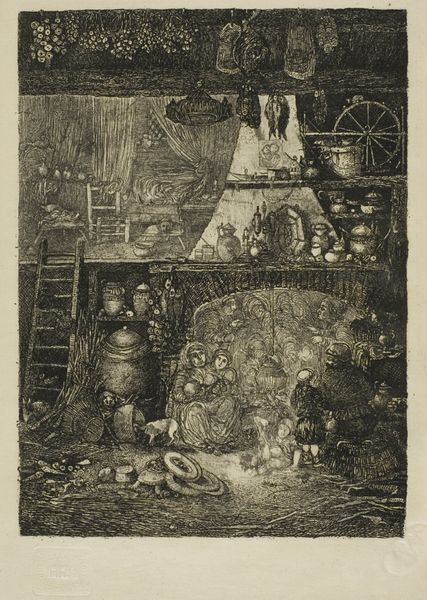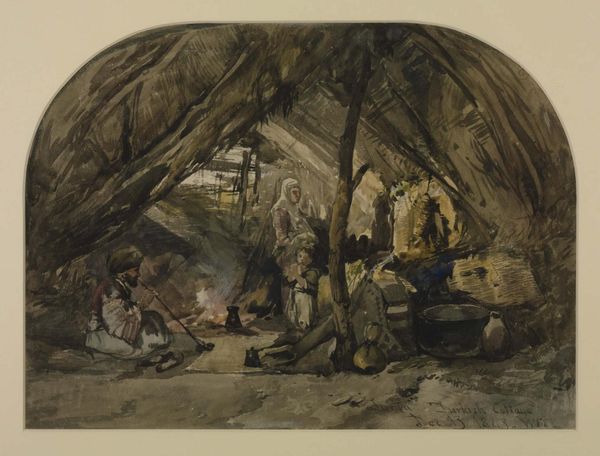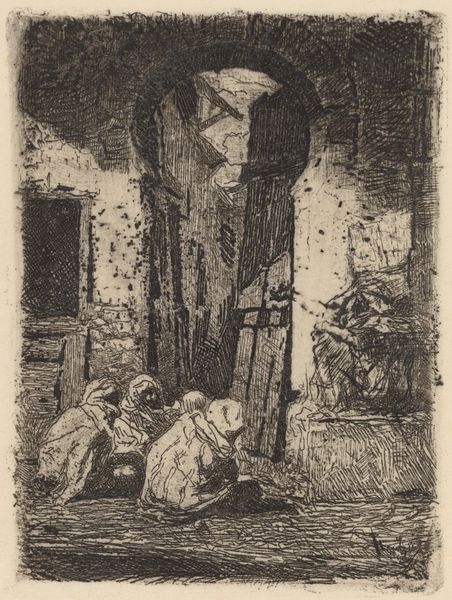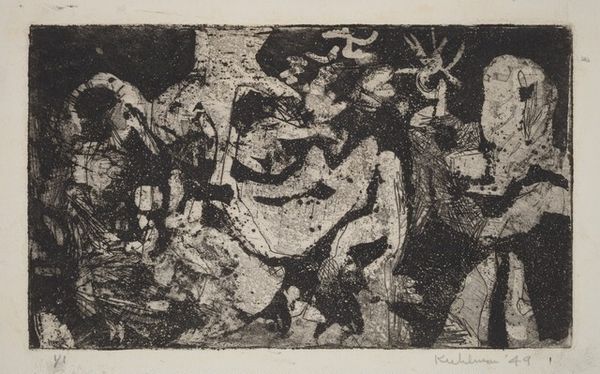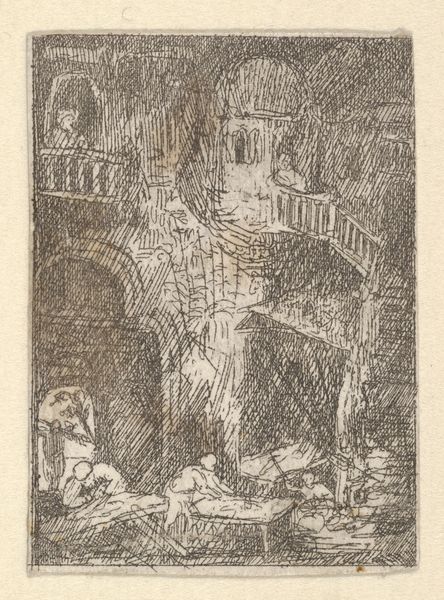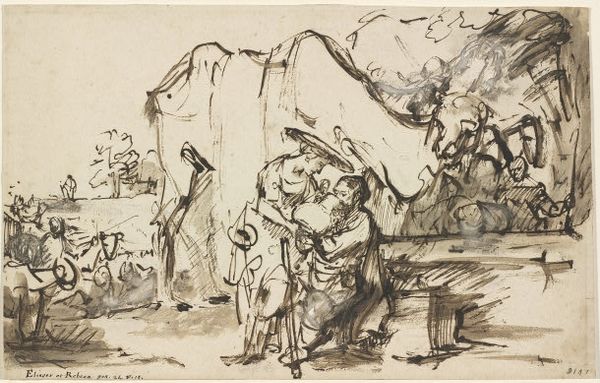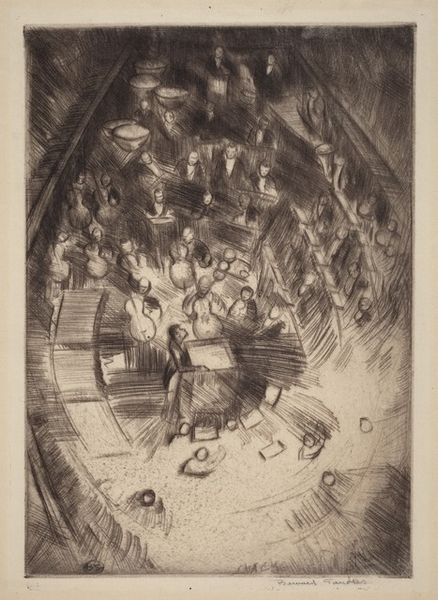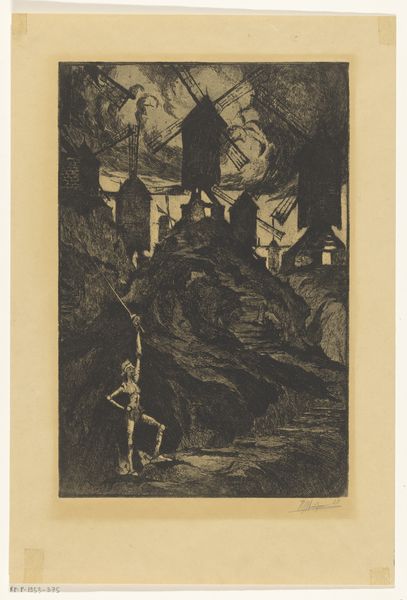
tempera, painting
#
tempera
#
painting
#
landscape
#
german-expressionism
#
fantasy-art
#
figuration
#
symbolism
#
history-painting
Copyright: Public domain
Hermann Hendrich presents a scene teeming with symbolic significance in his painting, "Witches' Dance." Firelight illuminates a night gathering filled with dancing figures and the unmistakable presence of the Devil himself overlooking the bacchanal. The gathering of witches can be traced back to the ancient world. Consider the ecstatic cults of Dionysus, where dance and ritual were believed to open pathways to otherworldly realms. The witch then, becomes a figure embodying forbidden knowledge, the untamed feminine, and a rejection of societal norms. Even in the Renaissance, artists like Dürer captured witches as figures of dark allure, underscoring the complex relationship between fear, fascination, and the occult. The figure of the Devil, with bat-like wings, perches above, embodying temptation, primal desires, and the darker aspects of human psychology. Such a depiction evokes a deep, subconscious anxiety, tapping into primal fears. The image does not merely illustrate a bygone belief but speaks to the cyclical recurrence of these symbols. The dance continues through time. The Devil's shadow still lurks in the corners of our collective psyche, and the witches keep dancing.
Comments
No comments
Be the first to comment and join the conversation on the ultimate creative platform.
